ERC Grantees
The ERC programme funds exploratory research with a criteria of scientific excellence. It aims to allow researchers to identify new opportunities in any field of research, while recognising the status and visibility of Europe's brightest minds. The ultimate goal of the ERC is to build a European research community prepared to respond to the needs of a knowledge-based society and to provide frontier research necessary to meet global challenges.
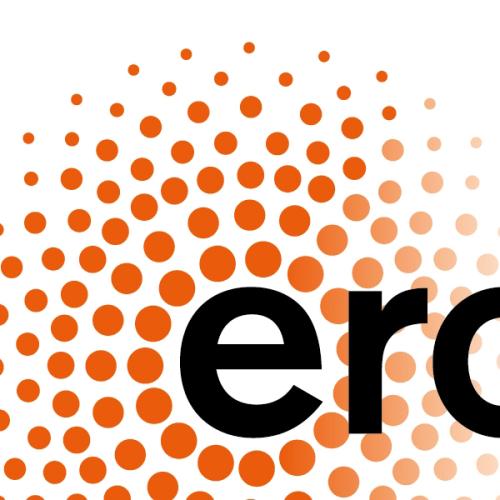
2025
INRAE obtained 2 ERC grants in 2025:
- 1 Consolidator Grant for Bastien Bissaro
- 1 Advanced Grant for Isabelle Basile-Doelsch
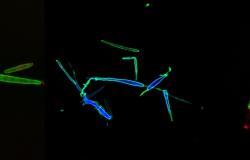
1 Consolidator Grant
Understanding why fungi oxidise the carbohydrates in their cell wallFilamentous fungi are capable of altering the chemical composition of their cell walls in order to thrive and adapt to their environment. Bastien Bissaro’s project sets out to investigate the mechanisms and opens significant prospects in many fields.
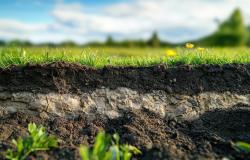
1 Advanced Grant
Are nanoCLICS the real drivers of carbon stabilisation in the soil?Isabelle Basile-Doelsch, a geochemist and specialist in soil carbon dynamics, is challenging existing models with a new approach: she argues that the time carbon remains in the soil depends on nanometric mineral elements.
2024
INRAE obtained 2 ERC grants in 2024:
- 1 Consolidator Grant for Arnaud Sentis
- 1 Starting Grant for Foteini Paschalidou
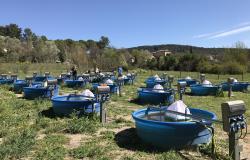
ERC Consolidator Grant
Arnaud Sentis receives a grant from the European Research Council for his ClimateCountDown projectFrom phytoplankton to lake fish, this project will help us to understand how communities respond to climate change and to predict the future of biodiversity.
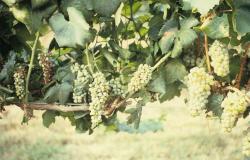
ERC Starting Grant
Foteini Paschalidou receives a grant from the European Research Council for her PANOPLY projectHer research aims to detect the interactions between vines and their environment when they receive volatile organic compounds alerting them to imminent danger.
2023
INRAE obtained 2 ERC grants in 2023:
- 1 Starting Grant for Claire Guinat
- 1 Starting Grant for Marc Peaucelle
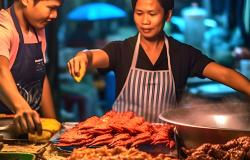
ERC STARTING GRANT Claire Guinat is tracking avian influenza viruses in live bird market networks
The TrackFLU project will investigate the transmission mechanisms of avian influenza viruses in live bird market networks in Cambodia.

eRC STARTING GRANT Marc Peaucelle receives a grant from the European Research Council for his LeafPace project
The LeafPace project is aimed at understanding the life cycle of tree leaves and how they respond to environmental changes and extreme climatic events.
2022
INRAE obtained 3 ERC grants in 2022:
- 1 Advanced Grant and 1 Proof of Concept Grant: Abdelhafid Bendahmane
- 1 Starting Grant for Fanny Mondet
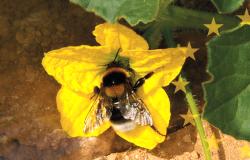
Two ERC grants Abdelhafid Bendahmane, doubly funded by the European Research Council
Abdelhafid Bendahmane has received an ERC Advanced Grant for making flowers more attractive to pollinators and a Proof of Concept Grant for exploring plant sex determination to improve crops.
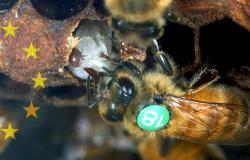
ERC STARTING GRANT Fanny Mondet receives a starting grant for Bee Healthy
“Bee Healthy” project, an innovative endeavour to decipher the mechanisms by which hygiene behaviour in bees allows them to defend their colonies against diseases such as the Varroa parasite.
2021
INRAE obtained 5 ERC grants in 2021:
- 2 Starting Grants: Claudia Bartoli and Kalina Haas
- 2 Consolidator Grants: Moussa Benhamed and Harry Sokol
- 1 Advanced Grant: Jean-Christophe Simon
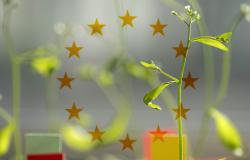
Two starting grants Two young INRAE researchers awarded in ecology and evolution, and in cellular biology
Claudia Bartoli, for exploring the Holobiont concept through a novel plant experimental evolution study, and Kalina Haas, for resolving the mystery behind plant growth mechanisms.

2 Consolidator grants Two researchers awarded in genetics, and microbiology.
Moussa Benhamed, for identifying hidden targets controlling heat stress and priming in wheat), and Harry Sokol for exploring the impact of the gut microbiota on host cells energy metabolism.
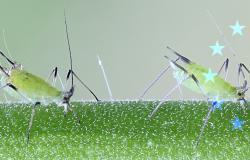
1 Advanced Grant An ERC Grant to better understand plant-insect interactions
Jean-Christophe Simon, for his project on the evolutionary and molecular determinants of host alternation allowing aphids to feed on different plants depending on the season.
2020
In 2020, INRAE obtained 5 ERC grants, for 30 project applications, i.e. a success rate of 16.7%. The 5 grants were attributed to:
- 2 Starting Grants: Julie Reveillaud and Charlotte Kirchhelle
- 1 Consolidator Grant: Lisa Wingate
- 1 Advanced Grant: Olivier Hamant
- 1 Proof of Concept Grant: Olivier Berteau

ERC Advanced and Starting Grants Two ERC grants for Olivier Hamant's team, for the study of shape acquisition in plants
Olivier Hamant has received an ERC Advanced Grant for the MUSIX project, which studies the role of mechanical forces on the shape of plants. The duration of the grant is 5 years, with a maximum budget of €2.5 million.
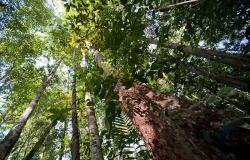
ERC Consolidator grant Towards a carbon-neutral Europe
The COSMYCA project financed by a €2.7 million ERC Consolidator Grant aims to improve our current representation of CO2 exchange between the biosphere and atmosphere in Land Surface Models by studying a similar gas to CO2: carbonyl sulfide (COS). Lisa Wingate will coordinate this project, which will contribute to a better understanding of the carbon cycle and how to adapt our ecosystems accordingly to face climate change.
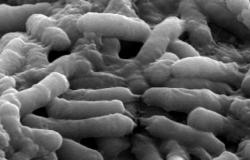
ERC Proof of Concept Olivier Berteau, recipient of an ERC grant, at the forefront of the microbiota
Olivier Berteau, research director at INRAE, conducts innovative research in the biochemistry of the gut microbiota. He is the recipient of one of the prestigious ERC Proof of Concept Grants 2020 which will enable him to develop new applications based on his team’s research work.
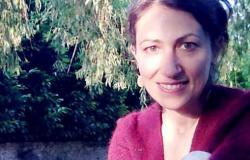
ERC Starting Grant Julie Reveillaud receives 2020 ERC Starting Grant
Julie Reveillaud receives a Starting Grant for her project ROSALIND on the interactions between the intracellular bacterium Wolbachia and its host, the common mosquito, Culex pipiens, in view to develop alternative control methods against insect-transmitted pathogens – a major public health issue. The article is in French only.
Previous grantees

Based on an animal model, scientists have proved for the first time that intestinal inflammation and concomitant changes in the microbiota can mutually sustain each other and generate a stable pre-disease state. Their results open new perspectives in terms of diagnosis, preventive nutrition and therapy in medicine.
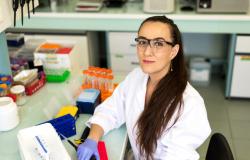
Stella Césari, a researcher at the Joint Research Unit for Biology and Genetics of Plant-Pathogen Interactions (BGPI) at INRA’s Occitanie-Montpellier centre, will receive a Starting Grant for her ii-MAX project.
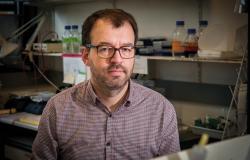
A specialist in the biochemistry of the microbiota, Olivier Berteau has been awarded a Proof of Concept grant from the European Research Council. This type of grant provides an opportunity to explore the innovation potential of a previous ERC grant project, in this case on the biosynthesis of active peptides.

Rut Carballido-López is the winner of a 2017 Consolidator Grant from the European Research Council (ERC). The award will provide 1.9 million euros to fund her team’s research on the morphogenesis of bacteria, and ultimately to open up new doors to finding different modes of action for antibiotics.

Harry Sokol is a gastroenterologist who specialises in inflammatory bowel disease. He has always been passionate about science, and conducts research on the role of the microbiota in immunity. His work has been recognised by the European Research Council, who awarded him a Starting Grant in 2016.

Olivier Hamant and his team made a significant discovery by demonstrating how mechanical forces interact with an organism’s regulatory gene network to determine its shape and size. In 2013, he received a grant from the European Research Council for his project which aims at identifying how mechanical signals are perceived and interpreted by the plant to control its growth.
